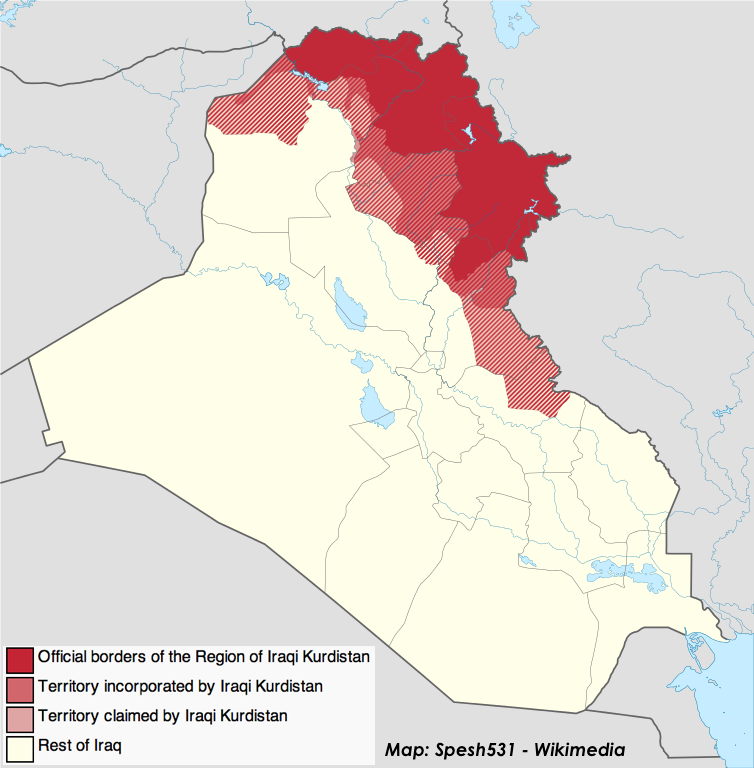Last week, Kurdish fighters had faulted severe ammunition shortages and lack of help from Baghdad for the loss of a number of key northern cities and the abandonment of some strategic targets and vulnerable civilian populations. I predicted that, despite years of fearful resistance by the central government politicians to the idea of the United States re-arming the semi-autonomous Kurdish Regional Government without going through Baghdad, the United States would be forced to exactly that and fast. The New York Times reports that U.S. direct weapons supplies have begun:
The Central Intelligence Agency has begun directly supplying weapons to pesh merga fighters, administration officials said, after weeks of pleas and demands from leaders in the country’s semiautonomous Kurdish region for help in fighting ISIS. But it remains unclear just how much weaponry the United States has funneled through to the Kurds so far; Defense officials said they would probably begin sending small-arms munitions soon, too.
The move is sure to further infuriate the Sadrist Movement — Shia hardliners — and probably some of the Islamic Dawa Party members aligned with Iraqi Prime Minister Nouri al-Maliki (who appears to be strenuously resisting attempts to replace him), who have opposed anything that might decentralize power in Iraq.
An unnamed U.S. official also commented on the apparent disjunction between the hard-earned fierce and competent reputation of the Kurdish peshmerga troops and their repeated retreats in recent weeks (which continued today):
“The pesh merga are composed of capable, disciplined forces who deserve their reputation as fierce mountain-war fighters,” a United States official said. “However, it’s been almost a decade since their mostly light infantry brigades have been tested in battle, so it’s not surprising that they’ve taken some knocks from ISIL.”
That was what I was starting to hypothesize myself, in recent days: They were such effective guerrilla resistance forces that everyone eventually just left them alone, which then meant that after a while they were no longer “battle-tested.” In contrast, ISIS had battled its way across Syria and Western Iraq for more than a year, fighting against two central governments and competing insurgent forces. But with proper supplies, the Iraqi Kurds have a better shot than anyone else in the region for turning back ISIS.
With the help of recent U.S. airstrikes, Kurdish Regional Government troops pressed back to retake some positions, but they also retreated from Jalawla — another key city under attack from ISIS forces. Kurdish commanders cited concerns that the Sunni Arab populations of that city and others in the area might be more sympathetic to ISIS than the KRG. This “fifth column” risk puts the Kurdish peshmerga paramilitary troops into an extremely dangerous and exposed situation as they try to hold some of these communities, which they officially have been tasked with protecting by Baghdad following the complete collapse of the northern divisions of the Iraqi Army in June and the fall of Mosul.
“We are waiting for the Arab clans in Jalawla to make clear who they are supporting,” Mr. Jangee said. “Because we know they were ISIS’ eyes and ears and guides and fighters in Jalawla. If they are going to be with ISIS or not, they need to declare it.”
The Pentagon assessment last night was that the U.S. airstrikes so far were helping disrupt (but not end) the ISIS siege of Mount Sinjar’s Yazidi refugees — some of whom were evacuated via Syria to a more northern Iraqi town — and were slowing or diverting (but not halting) the ISIS advance against the Kurdistan Region. That advance had brought ISIS troops to just inside the dark red zones — KRG home turf — shown on the map below by the end of last week and missile launchers and artillery to within range of Erbil, the regional capital.



